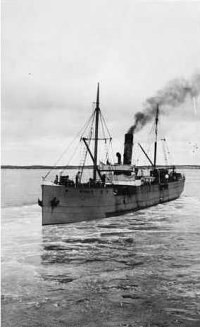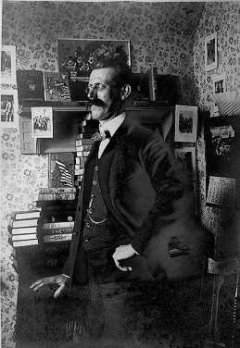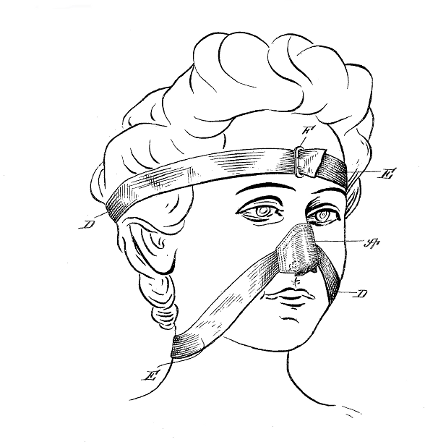
In 1880 a man calling himself Smith opened an office and a bank account in London and purchased stationery reading “Henderson & Co., Ship Brokers.” Later that year another man approached a Glasgow chandler to order a large quantity of stores — he explained that Smith had chartered the steamer Ferret for a Mediterranean cruise. Henderson & Co. and the bank vouched for Smith, so the chandler filled the order.
The ship steamed to Cardiff, where it picked up Smith and a crew of strangers. On Nov. 11 it sailed through the Strait of Gilbraltar, showing its number, and then vanished. When some of the ship’s casks were found floating in the Mediterranean, the underwriters paid for a total loss.
A water policeman in Queenscliff, Australia, happened to be reading about this in a Glasgow newspaper on April 19 when he noticed the arrival of a steamer strangely similar to the Ferret. The India‘s hull was black, its boats white, and its funnel red, but the resemblance was otherwise striking. He notified the authorities, who seized the ship, where they noted that the Ferret‘s official numbers had been chipped off the hatch.
The ensuing investigation showed that after passing Gibraltar, the criminals had repainted the steamer, tossed the casks overboard, covered their lights and stole back through the strait, whence they had made for Cape Town and then for Australia.
Two of the pirates served seven years’ hard labor and the third three and a half years. “But for the copy of the Scotch paper falling into the hands of the Queenscliff policeman,” recalled The Age in 1930, “the identity of the vessel would probably never have been discovered.”




